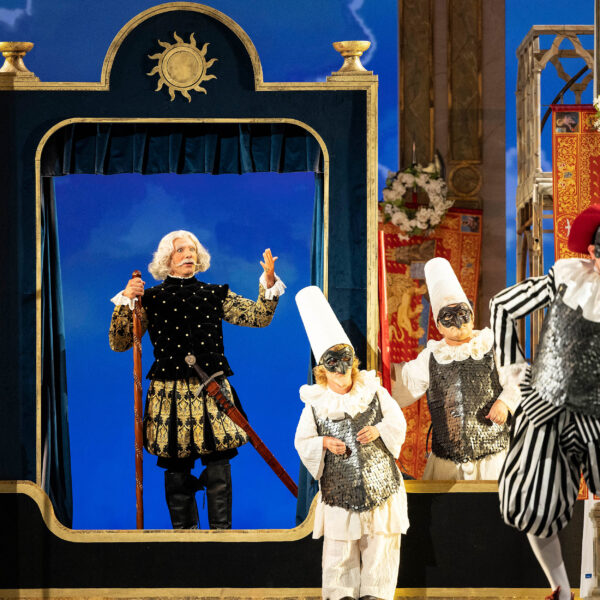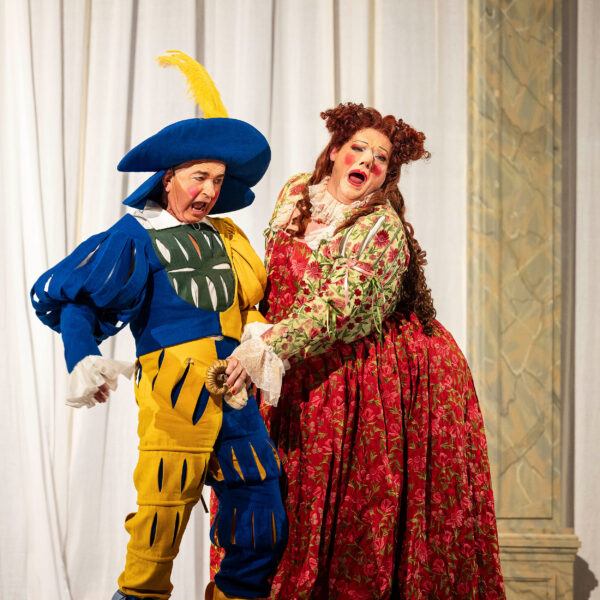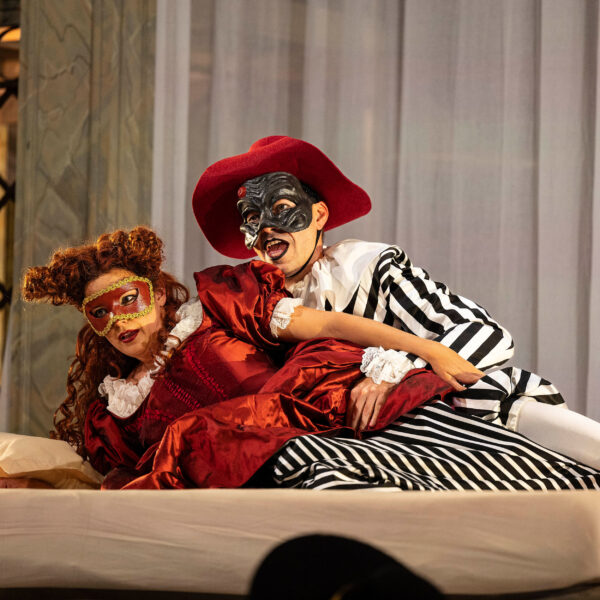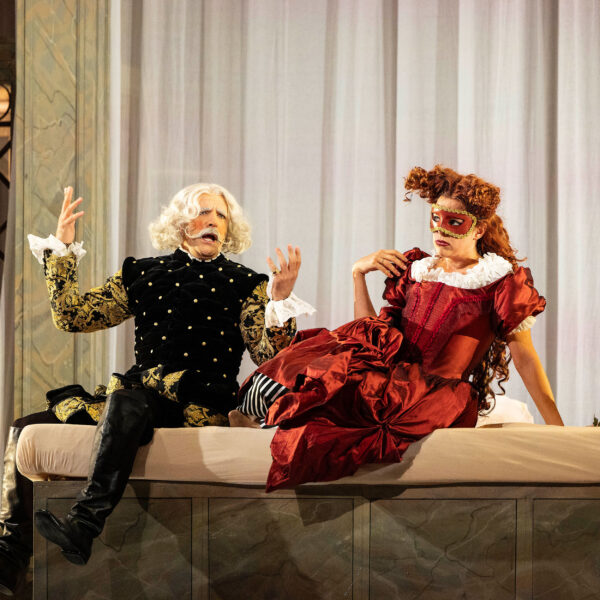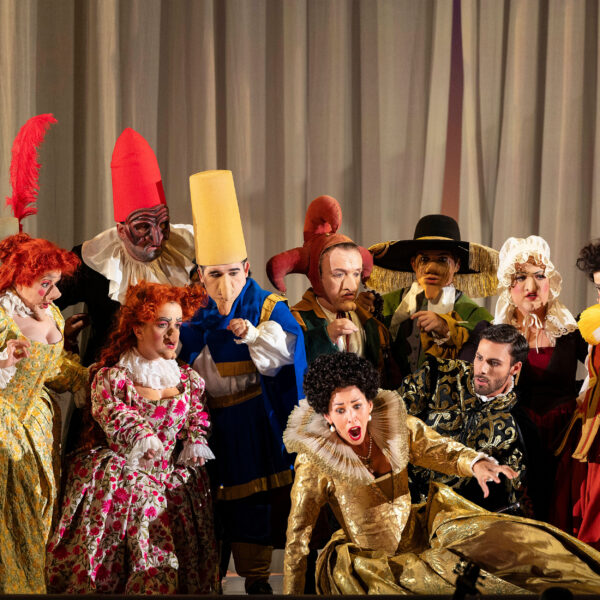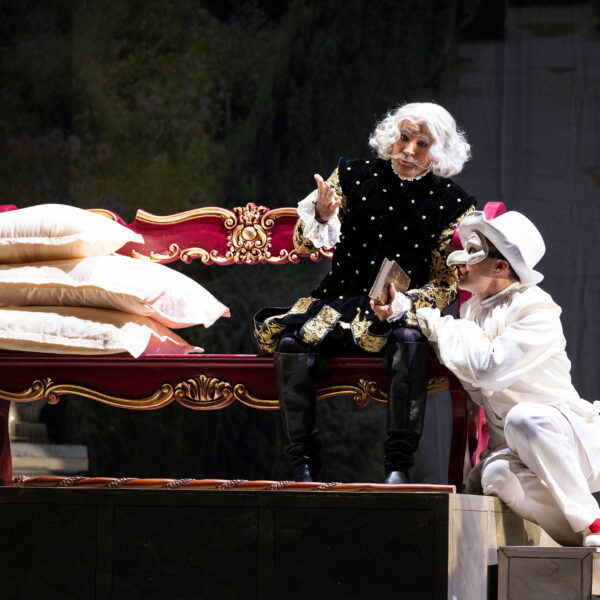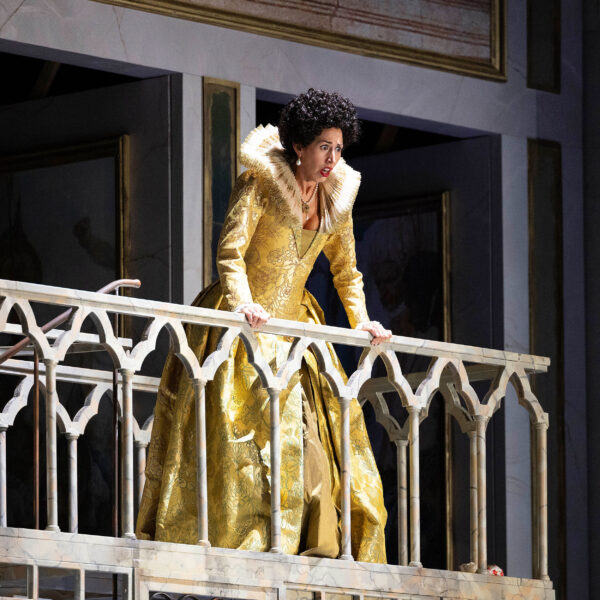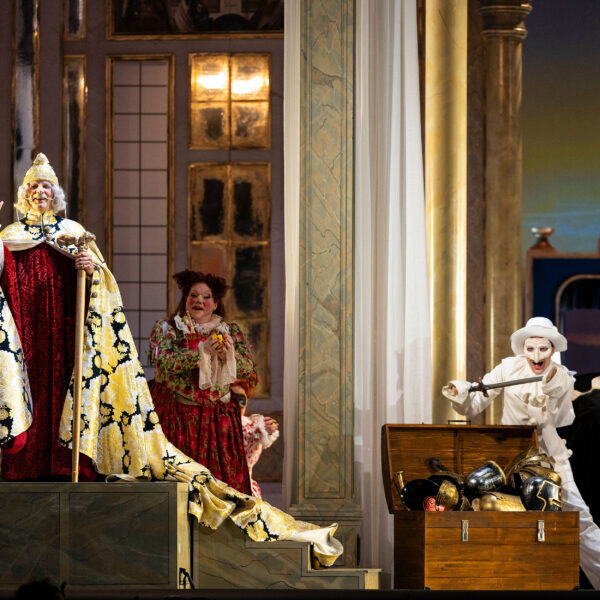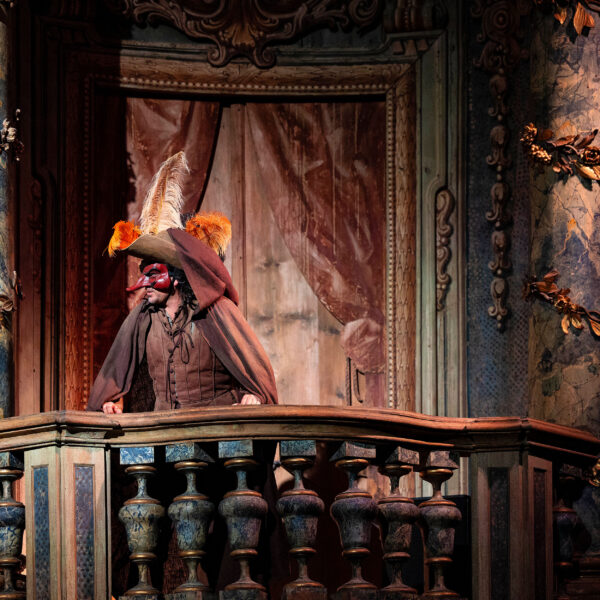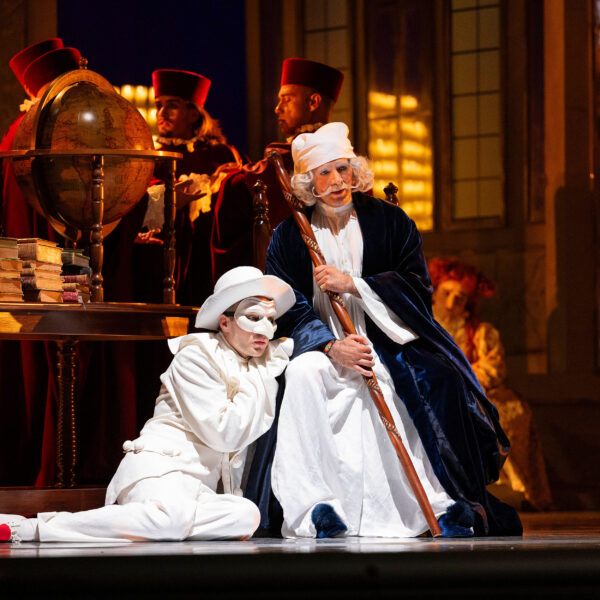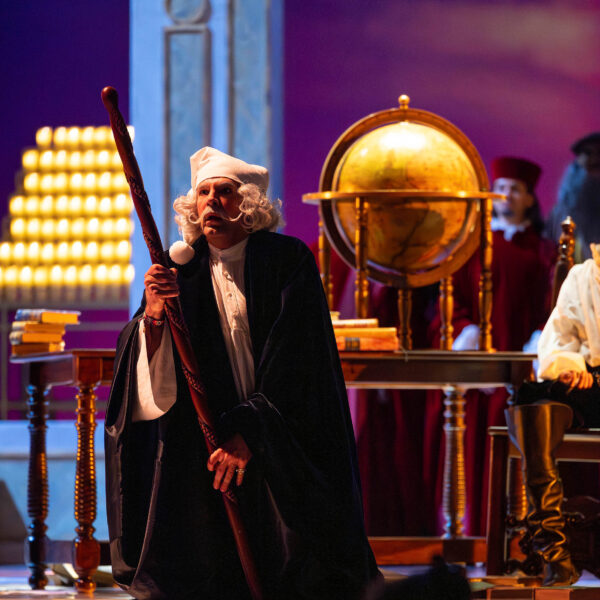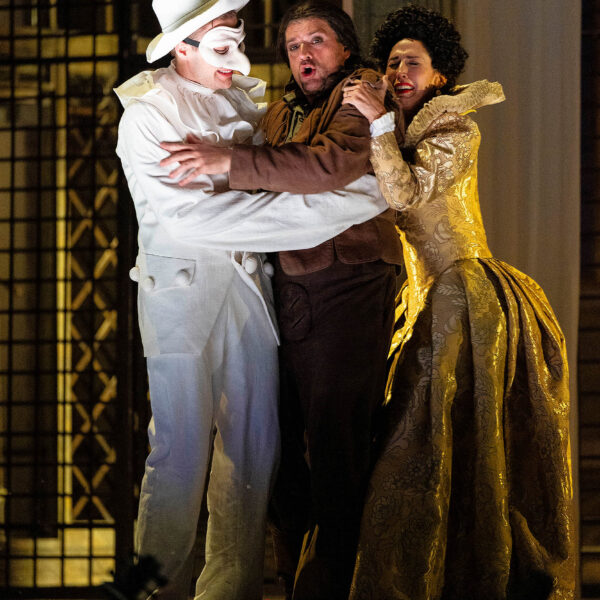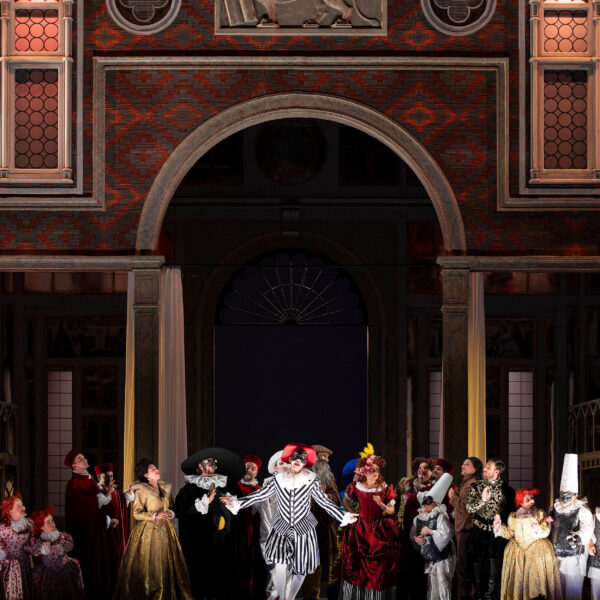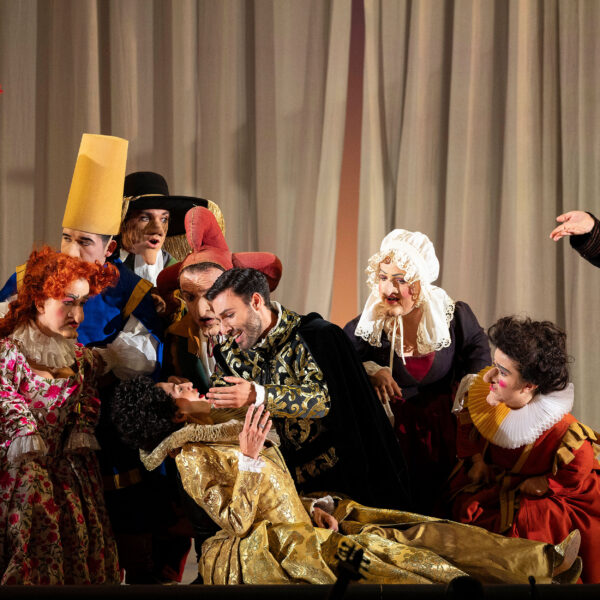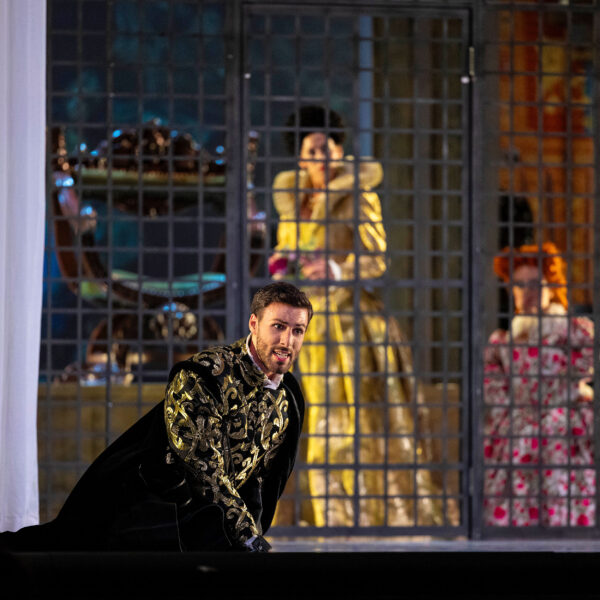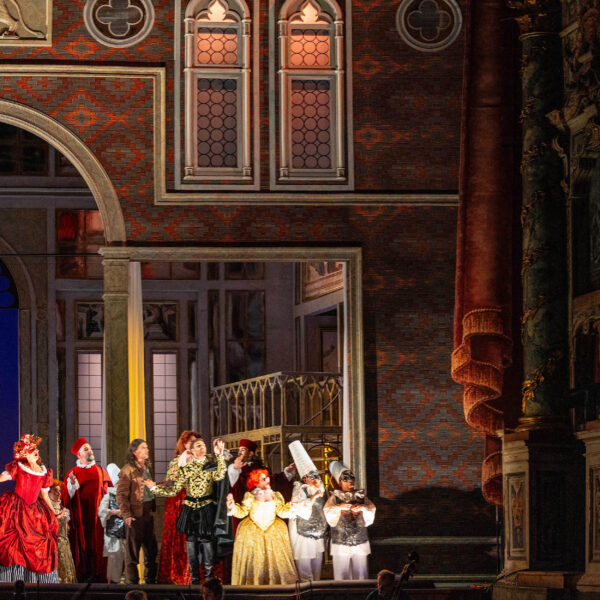This website uses cookies so that we can provide you with the best user experience possible. Cookie information is stored in your browser and performs functions such as recognising you when you return to our website and helping our team to understand which sections of the website you find most interesting and useful.
Pompeo Magno
About
Margravial Opera House Bayreuth
Dramma per musica in three acts by Francesco Cavalli
Text by Nicolò Minato
In Italian with German and English surtitles
Intermissions after Acts I and II
The great military leader Gnaeus Pompeius (Pompeo Magno) has returned victorious to Rome after his third campaign and is given a hero’s welcome by the grandees of the realm and by Caesar himself. But this is not the time to rest on his laurels, for a secret war, this time without the strident alarums of battle, is being fought behind closed doors at the Roman court, waged between love, desire, treachery and jealousy: Sesto, Pompeo’s son, desires the beautiful prisoner of war Issicratea, not realising she is the wife of the supposedly dead Mitridate, an adversary of the great Pompeo. But Mitridate is alive and well, living incognito in Rome, where he tests the faithfulness of his wife and the loyalty of his son Farnace. Pompeo himself is in love with Caesar’s daughter Giulia, who has already promised her heart to Servilio. The feared conqueror must now prove himself as a sensitive human being as well …
Taking centre stage of the Bayreuth Baroque Opera Festival 2025 is the scenic production of Francesco Cavalli’s incandescent opera about confusion and intrigue Pompeo Magno. First performed in 1666 at the Teatro San Salvatore in Venice, the works stands at the apex of the early history of opera, in which all elements shaping the contemporary art of music theatre are consummately interwoven as a densely compact and multifaceted drama. Tragic is juxtaposed to comic, profound emotions interchange with droll grotesquerie. Max Emanual Cenci stages this colourful drama with its rich diversity of characters from the merry and inebriated Carnival season and the commedia dell’arte with scintillating ideas and at a dashing pace. At his side he has a top class ensemble of singers and the Cappella Mediterranea under Leonardo García-Alarcón as a team of specialists in the music of the Italian seicento.
Cast
Leonardo García-Alarcón Conductor and Harpsichord
Max Emanuel Cencic Director
Helmut Stürmer Stage
Corina Gramosteanu Costumes
Léo Petrequin Light
Constantina Psoma Director’s Assistant
Chiara d’Anna Movement Coach
Max Emanuel Cencic Pompeo Magno
Mariana Flores Issicratea
Valerio Contaldo Mitridate
Alois Mühlbacher Amore / Farnace
Nicolò Balducci Sesto
Sophie Junker Giulia
Victor Sicard Cesare
Nicholas Scott Claudio
Valer Sabadus Scipione Servilio
Jorge Navarro Colorado Crasso
Dominique Visse Delfo
Kacper Szelążek Arpalia
Marcel Beekman Atrea
Cappella Mediterranea* Orchestra in Residence of the Bayreuth Baroque Opera Festival 2025
* Cappella Mediterranea is supported by the Ministry of Culture – DRAC Auvergne Rhône Alpes, the Auvergne-Rhône-Alpes Region, the City of Geneva, a Swiss family foundation, a Geneva private foundation, Brigitte Lescure, and by its Circle of Friends and its Circle of Entrepreneurs with Diot-Siac, Chatillon Architects, Synapsys and 400 Partners.
Aline Foriel-Destezet is the main sponsor of Cappella Mediterranea.
Cappella Mediterranea is a member of the Fevis (Federation of Specialized Vocal and Instrumental Ensembles) and CNM (National Center of Music).
ACT ONE
Issicratea, Queen of Pontus, and her youthful son Farnace are taken prisoner by Sulla in the battle and are living as prisoners of the great military leader Pomeo in Rome. Issicratea is wooed by both Pompeo’s son Sesto and by Cesare’s son Claudio. Her husband Mitridate, supposed dead, was able to escape after a lost battle against Pompeo. He roams freely throughout Rome, incognito. He finds his wife and thinks up a plan of escape.
Mitridate reveals his plane to Issicratea: he wishes to kill Pompeo. If this plan fails he will commit suicide and insists that his wife and son follow him in this fate. Mitridate steals into Pompeo’s house, but Farnace, who knows nothing of the murder plan or of Mitridate’s identity and is a friend of Pompeo, wakes the latter in time and saves his life. The boy distracts Pompeo, while Mitridate flees.
ACT TWO
Cesare and Crasso announce Pompeo’s latest victories to the jubilant populace. Cesare introduces his daughter Giulia; she is planned to become Pompeo’s wife. But Giulia is already betrothed in secret to Servilio. The latter sees that she would have a great future as Pompeo’s wife and decides to renounce his love. A contest of virtue and renunciation now unfolds between Pompeo and Servilio: each will favour the other by giving up Giulia. Pompeo wishes to reward Farnace for saving his life and allows him to choose an object from the riches he had plundered in the battle against Mitridate. Farnace chooses a sword that used to belong to his father.
Later, Mitridate reveals to Farnace that he is his father and demands his sword to be given back to him. At nightfall Sesto steals into Issicratea’s chamber and harasses her. She wrested the sword away from him and swears she will kill herself should he come near her. Mitridate hastens by to save her. She sinks into his arms as though through a fatal hit.
Issicratea’s servant Arpalia had supported Sesto in his wooing and helps him to flee. Enraged at this betrayal, Mitridate grabs hold of Sesto’s sword and kills Arpalia.
ACT THREE
During a ceremony in Pompeo’s theatre Issicratea enters with Sesto’s blood-spattered sword. She accuses Sesto of Arpalia’s murder. When Pompeo demands his son explain himself, the latter – ignorant of what had actually happened – admits to having murdered Issicratea. But when he sees she is still alive he refuses to admit anything for fear she could compromise him.
Pompeo swears to have Sesto executed and to adopt Farnace as his son.
Mitridate is much moved by Sesto’s self-sacrifice and reveals himself. When he wishes to poison himself together with Issicratea and Farnace, Pompeo intervenes and gives them all their freedom.
Servilio in the end “wins” the contest of virtuous renunciation; and Giulia becomes Pompeo’s bride.
The action on stage is interrupted time and again by dance interludes and comedic scenes. The crazy old woman Altrea and the servant Delfo entertain with grotesque and comical verbal sparring matches.
David Treffinger
Translation: Abigail Prohaska



